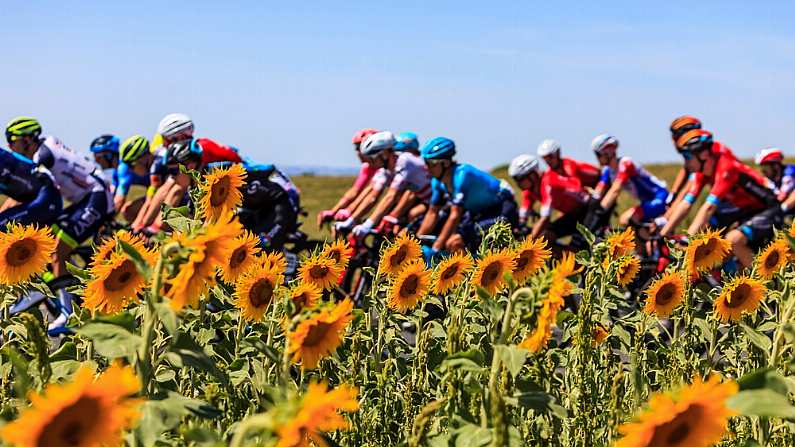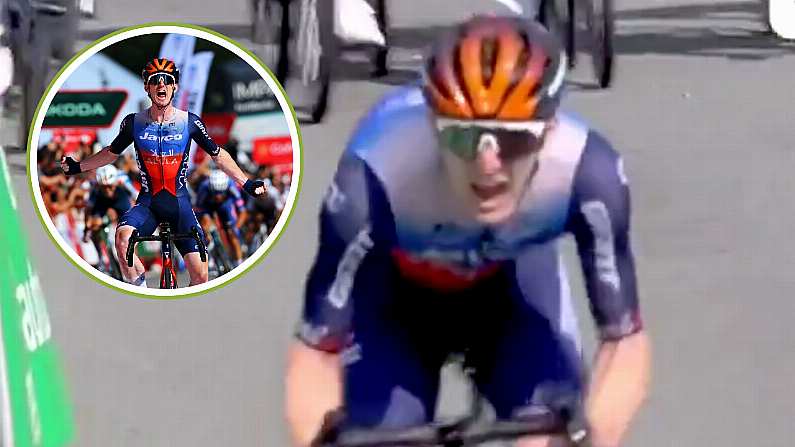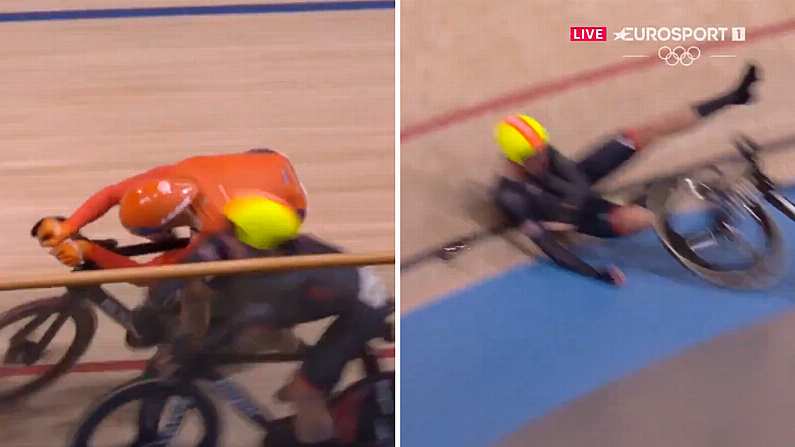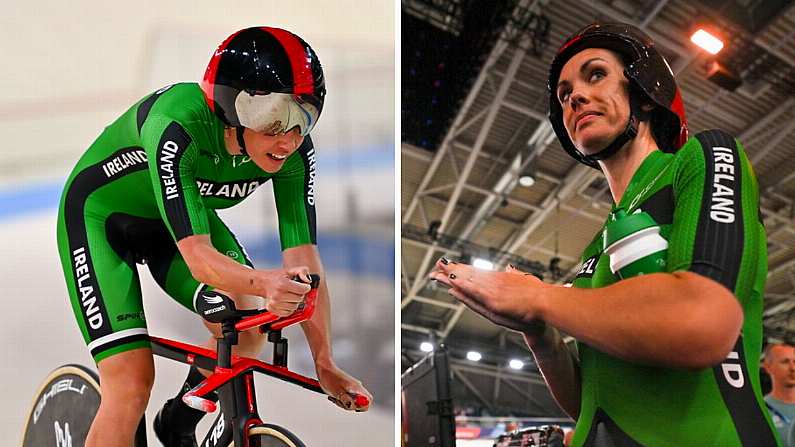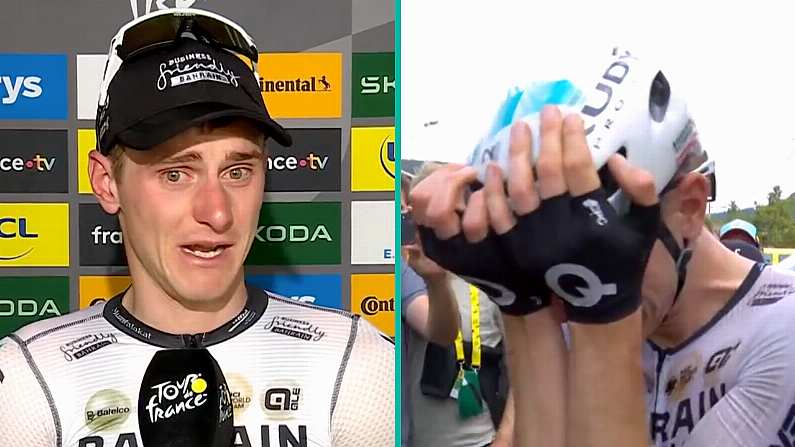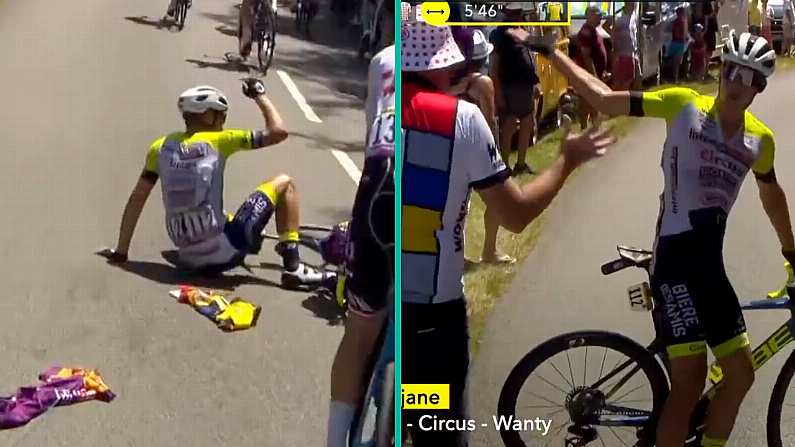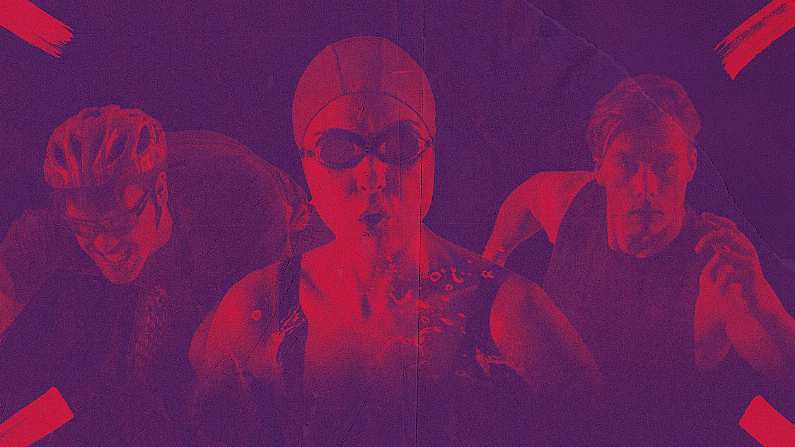It's that time of the year, the Tour de France returns to fill our daytime schedules. Over its 21 days of racing, millions will line the streets of France (and surrounds) to cheer on their favourites and boo their rivals in the world's biggest annual sporting event.
This guide isn’t for those with a burning passion for the sport and who can speak for hours about big rings and little rings, aero-based helmet choices and how radio-based communications have diluted the racing. This is a guide for those of you who’ll have a passing interest in cycling’s biggest event and want to understand what’s happening a little more clearly. Let's get you sorted.
Who wins the Tour De France?
There’s 21 stages in the Tour de France. There’s two time-trials – where the riders start separately and race against the clock – and 19 mass start stages. Those 19 mass start stages – called road stages – can take different forms. There’s flat stages where they’re likely to finish in a big bunch – called the peleton – and stages that finish 2,000m above sea level in the very steep mountains where the riders might finish solo or in small groups. The winner of the Tour de France is the cyclist who completes all stages in the least combined time. The person at the end of each stage with the lowest combined time at that point wears the famous yellow jersey – la maillot jaune – the following day.
So there’s only one prize?
No, first to cross the line each day wins the stage, and that in itself is very prestigious. There are cyclists who may struggle to get over the big mountains but have fast explosive finishes – called sprinters – who’s team will work for them so they can win the stage from the peleton. Other riders are climbers. They can struggle in the fast flat stages due to their small size, but can fly up mountains while the big sprinters struggle. Recently the puncheur has emerged. These are cyclists like Dutchman Matthieu Van der Poel who can climb better than sprinters, and sprint better than climbers. These riders, including Ireland's Ben Healy, are looking at the opening two stages as their chance to wear the yellow jersey.
Ben Healy: is he the only Irish cyclist involved?
Healy makes his tour debut for the EF Education team. He made his grand tour debut at the Giro D'Italia last year, winning a spectacular stage with a 50km solo break and he'll hope to be involved in the hilly/medium mountain stages. His team will target stage wins over everything else so you should expect Healy to be active. He warmed up for the Tour with a stage win in the Tour of Slovenia recently.
Sam Bennett is back for the first time since 2020. Then he won 2 stages on the way to winning the green jersey but missed the next three years due a combination of injuries, illness and lack of form. He's with a new team this year - Decathlon AG2R La Mondiale - and despite not having a win at the top tier of cycling this season, he has shown enough to warrant a place in the Tour. Bennett is no longer regarded as one of the fastest sprinters in the world, so he'll go into the Tour with more hope than expectation, but if everything goes right for him, who knows?
Danish rider Christoper Juul-Jensen was born here and speaks English with an Irish accent but he remains a proud Dane. TG4 will once again cover the race everyday while on Eurosport/Discovery+ Irish presenter Orla Chennaoui fronts their coverage that includes the legendary Sean Kelly.
It’s on TV?
Yep, every day for hours and hours. Each road stage in the Tour de France is between 140km and 230km. They last between 4 and 6 hours. Every second of that race is live with TG4, ITV4 and Eurosport/Discovery+ all providing broadcast and streaming coverage. You’ll get nightly highlights and post-race analysis too. The Tour de France is perfect background TV if you’re working from home with most days having tourist-baiting footage from France and it’s neighbours.
The Tour de France isn’t just in France?
ASO - the people who the Tour - have a policy of rotating the "Grand Depart" outside of France every two years. That's the aim, but last year they started in Bilbao and next year they'll start in Barcelona so it will be 3 opening weekends in a row outside France. Competing regions bid for the right to host it knowing how many people, particularly in Europe, watch it. Ireland hosted in in 1998. This year it’s Tuscany in Italy. They’ve three days of racing with stages finishes in Rimini, Bologna and Turin before entering France. The opening two stages are marked as hilly stages by the organisers so expect breakaways and strong men to come to the fore.
Any days I should pay particularly attention to?
Stage 1 is being targeted by all the riders whose season long aims are to win the classic one-day races, rather than perform during the 3-week-long grand tours. Ben Healy is one of them, but there will be 20 riders who believe they can win the stage and wear the first yellow jersey so fireworks are expected. It would surprise nobody if Tadej Pogacar wins ahead of the overall favourites though, if he wants to really test the peleton. Stage 4 is a huge mountain stage as we move from Italy into France and it may be where the general classification race really begins. Stage 9 is another classic style race with gravel and cobbled sections that could see one of the leaders lose a lot of time if things go wrong. It will be a stunning day to watch, regardless of who is involved.
Stage 15 is on Bastille Day, which falls on a Sunday this year, so you should expect every French climber to be on the attack. It's a very tough mountain top finish and follows another the previous day. This could be where the Tour is won or lost. The final stage is traditionally an easy jaunt into Paris for a sprint stage, but with preparations for the Olympics ramping up, the final stage this year is in Nice. It's not a ceremonial stage either though, with a 34km time trial sure to be exciting if the time gaps are small going into it.
One winner means it’s just an individual sport, yeah?
This is the biggest misconception about the sport. While the individual time trial races are cyclist versus clock, the road stages are team versus team. A standard flat day in the Tour de France will see a group of riders break away from the peleton early and race ahead of the rest. After it settles, the sprinters teams will work together to reel them back in, leaving enough men to lead out their sprinters in the race for the line. A stage win might not be possible for one man without the rest of the 8 man team working for him. These riders aren’t there to win, they are there to ride in support of the team’s aim. They’re call “domestiques” – if you want to really impress a cycling fan, you could call them a “gregario” as the Italians do.
In mountainous stages, a team might use it’s “roleurs” – strong domestiques that are good on flat or rolling terrain - to control things before using climbers or “super-domestiques” to help launch the team captains for attacks that could decide the overall race. Stages in the mountains usually decide who wins the Tour de France and all the favourites are excellent climbers. Jumbo-Visma - renamed Visma Lease-a-Bike for this year - won all 3 grand tours last year showing how deep their squad was.
Who are the best climbers?
The team leaders, the guys hoping to win the whole thing, are usually the best but there’s a prize for the “best climber” with points on offer for the first few (depending on the steepness of the mountain). The person with the most points wears the Polka Dot Jersey as the "King of the Mountains". Looks for the tiniest guys in the peloton, they’re likely to be involved in the race for the King of the Mountains prize in the really steep mountains - rated as "Hors Catégorie" (HC) - meaning "beyond categorisation!" - with the points being won by breakaway specialists on the smaller, more undulating days. These breakaway specialists can often win the Polka Dot jersey overall as they fight for every point while the team leaders care more about saving energy for the finale every day.
And is there a prize for the best sprinter?
Yes, well, kind of. The Green Jersey is for the winner of the Points Classification. Points are awarded to the first few riders across the finish line every day and to the first few riders across specified “intermediate points” along the route. Generally, it is sprinters who go for this prize but as points are awarded on non-sprint finishes, consistently strong riders can win the Green Jersey too. While there has only been one Irish winner of the Yellow Jersey – Stephen Roche in 1987 – we have won the Green jersey five times; Sean Kelly in 1982, 1983, 1985 and 1989 and Sam Bennett in 2020. Bennett is a sprinter while Kelly was a much more rounded cyclist who won this jersey by being competitive in every type of stage. There are 8 flat stages this year, so the winner of this should be a sprinter with last year's winner Jesper Philipsen being a hot favourite to repeat.
Who are the favourites to win the Yellow Jersey?
Jonas Vingegaard – a climber from Denmark for the Visma Lease-A-Bike team - has won the previous two editions. Vingegaard excels in the very high mountains and last year won the only time trial by over 90 seconds. His preparations for this year haven't gone to plan though as he broke his collarbone in April had hasn't raced since. Vingegaard's strongest domestique - American Sepp Kuss - has had to pull out of the race in the final week so expect the rest to test the Dane's fitness from the start.
Tadej Pogacar is the best all-round cyclist in the world. Winner of the Tour in 2020 and 2021, he's finished 2nd for the past two years. He won the Giro D'Italia in May and is attempting to become the first man to win the Giro-Tour double since 1998. The Slovenian is backed by an incredible strong UAE Team Emirates squad with Adam Yates, Joao Almeida and Juan Ayuso all being potential leaders on other teams. Pogacar cannot stop himself from attacking but he couldn't handle the super high mountains with Vingegaard. We'll see if he's worked on that.
Primoz Roglic is another Slovenian who was leader of Jumbo Visma in 2021 before crashing out allowing Vingegaard rove himself by finishing 2nd. Roglic, 3 time winner of the Vuelta a Espana and winner of the 2023 Giro, had to play second fiddle for Jumbo after that and he left them at the end last season for the Bora-Hansgrohe team. Bora have never won the Tour and have put everything into winning it this year, surrounding Roglic with a very strong team. Roglic was also injured in April but he made his come back last month. If Pogacar is tired from the Giro, and Jonas is still injured, Roglic might finally win the big one.
Remco Evenepoel has been marked for greatness since a very young age. He won the Vuelta in 2022 but hasn't competed yet in the Tour de France, and hasn't completed any grand tour since, with illness and injury stalling his development. He's the best time trialler in the world and if he's fit, he'll likely finish on the podium. Did we mention that Roglic and Vingegaard were injured in April? On a downhill section in the Tour of the Basque Country Remco, Jonas and Primoz all slid off. That one corner may have had a huge impact on the biggest race in the sport.
The above four have been crowned "the big four" and this is the first time they'll have raced each other for more than one day. 3 of them suffered injures in April, while Pogacar and Evenepoel have had slight bouts of illness in the last couple of weeks so there's plenty of question marks around them all. If anyone else is to challenge for the podium it's likely to be Carols Rodriguez from the Ineos Grenadiers. The Spaniard was 5th on debut last year and won the mountainous Tour of Romandie in April.
Any predictions?
Alberto Bettiol to win the opening stage and wear yellow until stage 4 when Bora-Hansgrohe attack constantly to break Jonas Vingegaard before Pogacar pops off to win the stage and claim the jersey. Remco Evenepoel to win the time trial and wear yellow before fading in the week 3 mountains. The Tour comes down to the final time trial where Tadej Pogacar does enough to win by 20 seconds from Jonas Vingegaard. Jasper Philpsen wins 4 stages and the green jersey. Ben Healy wins the most aggressive rider prize but no stages. Sam Bennett beats Mark Cavendish by the width of a tyre on stage 6 with Cavendish leaving the race without breaking the record for most stage wins.
Enjoy the race!

